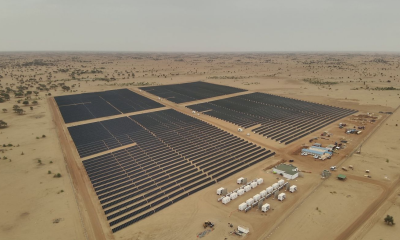South African renewable energy project, Zeerust Solar facility has started commercial operations after achieved full compliance on January 1. The North West province based facility will supply the energy requirements of around 84 000 South African households. The project is currently the largest solar PV plant in the province and is estimated to generate approximately 180 GWh per year from its 250,080 solar panels.
Construction on the project commenced in January 2019. The solar energy facility is constructed on a 179-hectare project site and is connected to Eskom’s Kameeldoorn switching station, which feeds the generated power into the country’s national grid. The 100% South African-owned photovoltaic (PV) project joins the Bokamoso and recently connected Waterloo Solar plants, putting the North West on the map as a key player in the South African renewable energy sector.
Zeerust Solar is owned by a consortium of African Infrastructure Investment Managers (AIIM), a member of Old Mutual Alternative Investments, through its IDEAS Fund, Reatile Solar Power, Phakwe Solar, African Rainbow Energy and Power and Cicada Community Trust.
Economic and social impact of the solar facility
During the project’s construction, an estimated 1,000 locals were employed. This is in line with the government’s localisation policy to ensure locals that stay in areas where projects are being developed get to directly benefit from the opportunities the projects bring. In addition to that, more employment was created through the contracting out of various services.
A number of socio-economic development projects are set to be implemented which will be focused on education, youth development, health, food security and welfare.
“Extensive economic development projects kicked off during our project’s construction period to provide Covid-19 relief, in addition to enterprise development training and accelerator programmes, skills development training and other welfare initiatives,” said Zeerust Solar CEO Isaac Mmushi.
A percentage of the revenue generated each year will be committed to implementing enterprise development initiatives, to build resilience and accelerate the growth and success of entrepreneurial businesses, ultimately stimulating the local economic growth and creating opportunities for the economic participation of previously disadvantaged groups.












